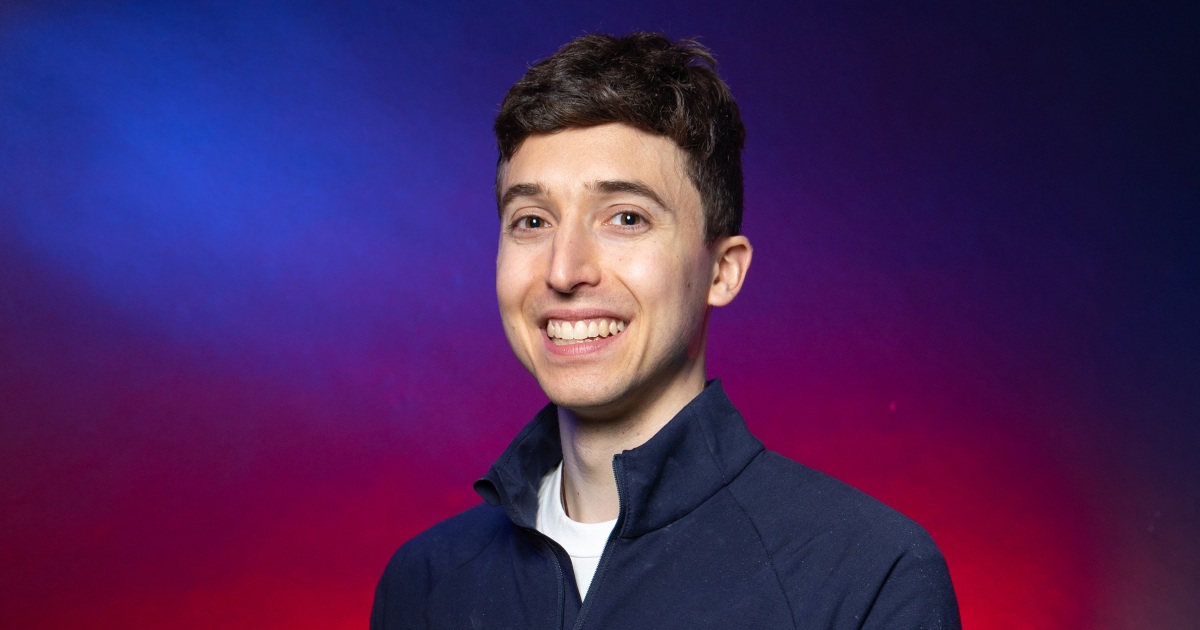
U.S. climber Jesse Grupper remembers when he was 16 and experienced pain in his abdomen for the first time.
“I thought it was either food poisoning or just a reaction to stress from finals period,” he said on NBC’s “My New Favorite Olympian” podcast. “When the first one ended, I was like, ‘OK, that’s it. I’m not going to have these symptoms again.’ But then when it came back, I realized that there was something more fundamentally wrong.”
Grupper was diagnosed with ulcerative colitis, a chronic inflammatory bowel disease that causes inflammation and ulcers in the large intestine. Symptoms, including abdominal pain and fever, can unexpectedly flare up under stress, which caused Grupper to reflect on his competitive climbing.
“I was really nervous about how this condition would affect my climbing career,” he said. “It made me kind of reassess my relationship with climbing in some way. I’ve always done climbing because it’s super fun, enjoyable. It feels really physically and mentally challenging, but I never really thought about if it could really affect me, because [it] never had in the past. I had to figure out ways to mitigate the causes of stress with climbing, as well as change my daily habit.”
Three years after his diagnosis, Grupper persevered by winning the 2019 USA Climbing Sport Open Nationals. But in January 2021, he was hospitalized for a week following a colitis flare-up when his medications stopped working.
It left Grupper on “death’s door,” his father said.
“He was floored. It was very scary, very serious,” said his father, Jonathan Grupper. “You could see how pale he is and how shaken. And there were days that passed where we were worried for his life and he did not have the spirit that got him through previous challenges.”
More from Olympics
In the face of adversity, Grupper wrestled with the thought his competitive climbing career could be over.
However, despite the challenges of living with a chronic disease, Grupper never quit. Instead, he used his life-changing experience to pay it forward for those who have their own disabilities.
When he was 18, Grupper became a coach for Peak Potential, a volunteer nonprofit organization that helps children with disabilities in the New Jersey area practice bouldering, in which people climb on small rock formations or artificial rock walls without harnesses and ropes. Grupper joined during his freshman year of high school, and for three years he helped hundreds of children pursue their dreams of reaching new heights.
“I remember a seventh grader who I worked with in this program, he would come in a wheelchair,” he said. “He had cerebral palsy, and at the start of the program, he really struggled to progress on a lot of the walls. But by the end of the program, which was over the course of 12 weeks … he was able to do almost all of the walls that we had. It was just a really transformative experience for me, getting to see how this opportunity could really transform his life.
“A lot of these kids come in with the notion that climbing isn’t necessarily made for them,” he added. “And by the end of the program, they’re able to see that climbing really is for them.”
Grupper realized climbing was for himself at a young age. He took up the sport at 6 years old, and after only three years he had progressed to the senior bouldering team at his local gym under the guidance and mentorship of his coach.
“Nobody expected anything of it,” coach Randi Goldberg said. “But he did well enough in the qualifiers. So he looked like he belonged, and it turned out to be a surprise he qualified for the finals.”
Looking to build on his success, Grupper decided to pursue climbing full-time in 2022. Although he has continued his upward trajectory by winning the gold medal at the 2023 Pan American Games, he has made it clear that winning is not his top priority.
“Winning is just one day of your life, whereas climbing can be a lifetime adventure in pursuit,” he said. “I think that if I were to be judged on every day I won, then I should equally be judged on every day I lost. And I think for me, it’s just way more valuable to be able to be involved in the sport for a long period of time.”
One way Grupper is looking to make a lasting impact is through his research in mechanical engineering. In 2015, he enrolled at Tufts University, where he launched the Biomechanics Club to develop assistance devices for patients with disabilities. He then joined the Harvard Biodesign Lab at Harvard’s School of Engineering and Applied Sciences, where he designed devices to restore movement to people who had had strokes.
“It was a really exciting time for me getting to kind of build these devices, getting to iterate and then getting to test them on patients in the field,” he said. “One patient we had kind of started out with limited mobility in their hand. And by the end of the session, after working with us for a four-week period, they had gained enough mobility to do certain dexterous tasks like opening up a door, like the refrigerator or a cabinet, which was really, really cool to see.”
And although the chance at Olympic glory potentially awaits Grupper at the 2024 Paris Olympics, he continues to focus on what he has always done: helping others.
“I think being able to push myself as a climber and physically better myself is one thing,” he said. “But just being able to have the same process of providing an opportunity to another person to push themselves … [is] something that really resonates with me as impactful and meaningful as a part of my life.”






